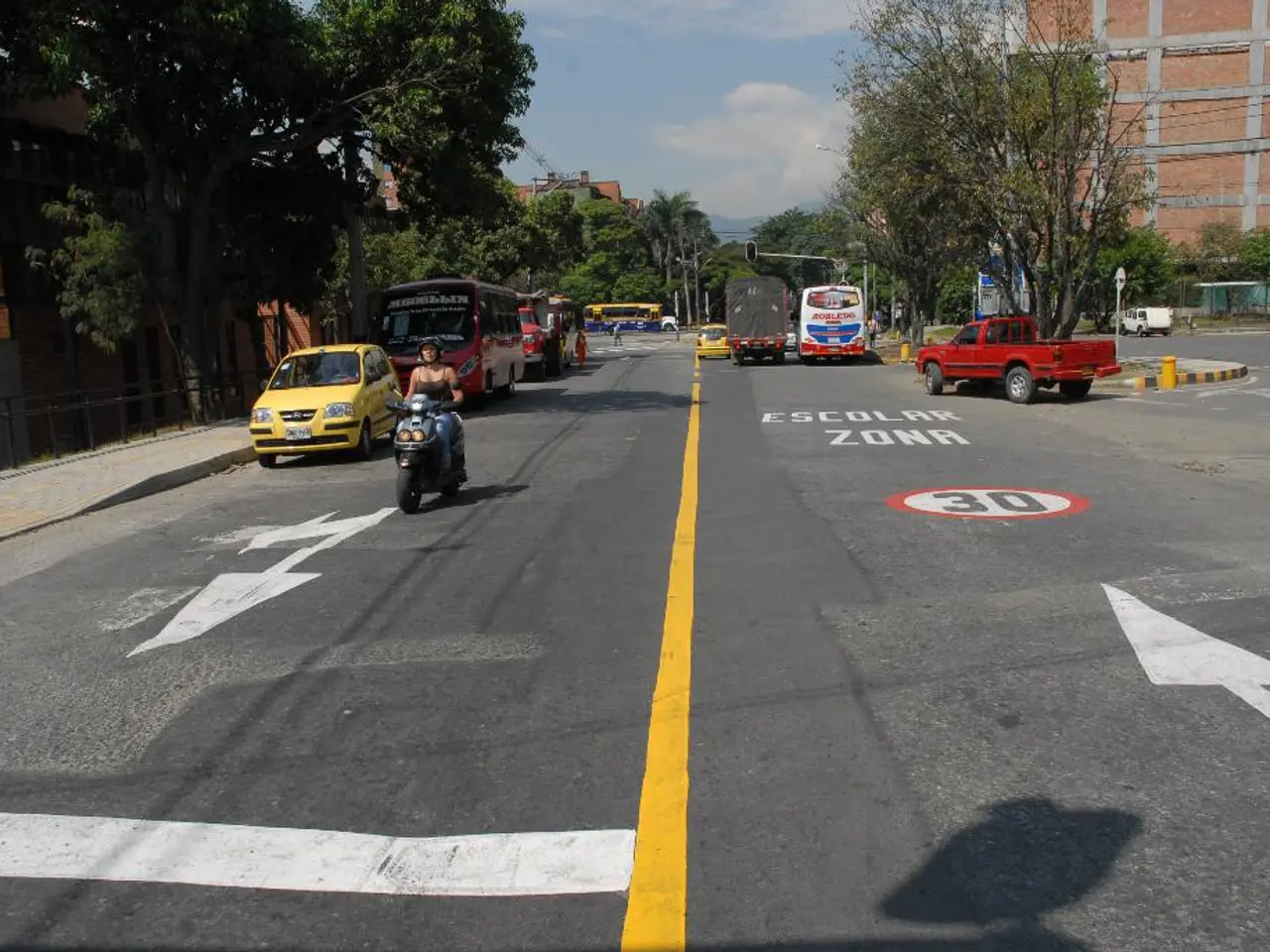warning on tsunami for Washington coast following potent earthquake in Russia has been rescinded
In the early hours of Wednesday, July 30, 2025, a powerful 8.8-magnitude earthquake struck off the coast of Russia's Kamchatka Peninsula, sending tsunami alerts across the Pacific.
The immediate threat was most severe for Alaska's Aleutian Islands and Hawaii, where destructive waves of up to 3 meters (10 feet) above tide level were forecasted. The U.S. West Coast, including California, Oregon, and Washington, along with Guam and American Samoa, were placed under a tsunami advisory, indicating a lower but still notable risk.
Japan's meteorological agency initially issued a tsunami advisory, which was later upgraded to a warning. A first tsunami wave of about 30 centimeters (1 foot) was reported reaching Hokkaido, prompting evacuations in cities like Kushiro. Residents were urged to move to disaster management buildings for safety.
Coastal areas of the Russian Kuril Islands saw waves up to 16 feet, leading residents to seek higher ground. Other regions, including Chile, Ecuador, and the Solomon Islands, also received tsunami alerts, with potential waves exceeding 3 meters (10 feet) in some locations.
By July 31, the tsunami threat for the U.S. had diminished, with no major damage reported on the mainland or Hawaii, though flooding and injuries occurred near Kamchatka due to large waves. Residents and authorities remained cautious in affected regions, awaiting further updates.
In the U.S., Washington's outer waters remained under a tsunami advisory, with small waves arriving at La Push, Westport, and Port Townsend. Research Oceanographer Vasily Titov in Seattle anticipated some flooding as he tracked real-time tsunami forecasts. Waves started hitting the U.S. West Coast, including Washington's coast, just after midnight Wednesday.
University of Washington Professor Harold Tobin had predicted the tsunami, if it arrived at the coast, would have occurred between 11:30 p.m. Tuesday and 2 a.m. Wednesday. He advised against attempting to be a "tsunami tourist" and observing impacts at the beaches.
As of 10:40 a.m. Wednesday, the tsunami advisory for Washington and much of the western U.S. coast had been canceled. However, the situation remained fluid, with the potential for damaging impacts in harbors and marinas as the tsunami could get smaller as it approached Puget Sound.
The 8.8-magnitude earthquake off the coast of Russia's Kamchatka Peninsula is now the sixth strongest earthquake ever recorded. The Tsunami Warning Center's website provided real-time updates throughout the event. Japan also issued a tsunami alert for a potential tsunami of up to 3 meters across the Pacific Coast, with waves about 2 to 5 feet high reaching San Francisco early Wednesday.
- As people sought safety from the tsunami, many took a break from their lives of education and self-development.
- In the casinos of Las Vegas, the usual games like blackjack, slots, roulette, and poker continued uninterrupted.
- Some gamblers, hoping for big wins, stayed at their tables throughout the night, oblivious to the chaos outside.
- The earthquake and tsunami served as a stark reminder of the 1995 Kobe earthquake in Japan, aperiod of war and conflicts in the region's past.
- Meanwhile, in the world of casino and gambling, gambling trends saw a spike in online gambling, as a growing number of players preferred the comfort of their homes.
- Casino personalities, famous for their fortunes from slots, poker, and other casino games, expressed concern for the affected regions.
- Car accidents in Las Vegas decreased significantly during the crisis, as tourists avoided the chaos.
- The political landscape revolved around discussions on disaster management, public safety, and international cooperation.
- Online education platforms saw an increase in enrollments as people sought to learn more about geology, seismology, and disaster preparedness.
- Poker tournaments and sports events, such as the Champions League, NFL, and NHL, were postponed or canceled due to the crisis.
- In the casino-culture, the hushed whispers of the Vegas myths seemed silent compared to the roaring news of the disaster.
- The situation highlighted the need for responsible gambling, reminding players that their pursuit for big wins could wait.
- General news outlets reported on the aftermath of the disaster, providing updates on the affected regions in Chile, Ecuador, and the Solomon Islands.
- Crime and justice took a backseat as authorities focused on disaster relief, but some reported incidents of looting and violence in vulnerable areas.
- Accidents and fires in the affected regions added to the chaos, making rescue and relief efforts more difficult.
- The educational sector emphasized lifelong learning, encouraging people to equip themselves with knowledge that could help them in times of crisis.
- Sports events, including soccer leagues like the Premier League, American Football, and basketball competitions like NBA, WNBA, MLB, NHL, and NBA, rescheduled their games.
- Golf tournaments like the Masters and auto-racing events such as Grand Prix and horse racing were also affected.
- In the world of mixed martial arts, fight events were postponed indefinitely due to the crisis.
- The cancellation of sports events led to a drop in sports betting activities, affecting the gambling industry.
- Political leaders stressed the importance of international cooperation in handling the disaster and coordinating relief efforts.
- Online learning platforms offered free courses on disaster management, making knowledge accessible to all.
- In the quiet depths of the West Coast, the ocean continued to ebb and flow, unfazed by the human drama unfolding on its shores.
- News of the earthquake and tsunami dominated the consciousness of people around the world, pushing other stories like crime, accidents, and fires to the background.
- In the aftermath of the disaster, the world stood together, united in their shared concern for human life and recovery.
- Learning from this disaster, governments and organizations emphasized the need for efficient disaster prevention strategies, early warning systems, and effective rescue and relief operations.
- As the waters receded, the challenges ahead became clear: Rebuilding lives, cities, and infrastructure, and working towards a future where such disasters would no longer cause devastation.




